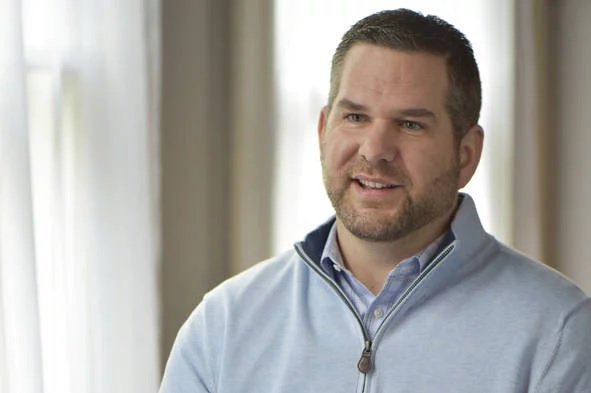Q&A: Supporting the emotional needs of cancer patients

By Laura McDonald
Joe Mitrovich, PsyD, is a psychologist who provides therapy to cancer patients throughout MultiCare Regional Cancer Center locations in Tacoma, Gig Harbor, Auburn and Puyallup. His position is funded by donor contributions through MultiCare Health Foundation.
We talked to Dr. Mitrovich to learn more about the support he provides.
Why is it important to treat the emotional needs of cancer patients?
Dr. Mitrovich: In my practice, I regularly hear from patients that at different points in their journey, cancer can be even more challenging to deal with emotionally than it is physically. These emotional, social and behavioral factors have a direct effect on physical well-being. When we treat the emotional needs of our patients, there are physical benefits.
The best part of my job is having patients come back and share with me that they are sleeping better or communicating better with their spouse. Or that they are experiencing less worry and fear.
What are some of the most common behavioral health issues cancer patients struggle with?
Dr. Mitrovich: I see cancer patients by referral who are suffering from anxiety, depression, chronic pain, insomnia and many other issues. Given that cancer is really a family diagnosis and tends to disrupt the entire system, I also meet with a lot of patients and their families to help with communication around challenging topics and understanding how they can best support each other during their cancer journey.
There are also many people who face cancer alone. I see a lot of patients who have lost spouses and have limited social support. They need someone to process their experience with. In one instance, I worked with a Vietnam veteran whose wife had died and he had no family in the area. He would come in to the MultiCare Regional Cancer Center for treatment, then go home and sit in the dark. Through therapy, he started to make meaningful connections with people and activities he enjoyed. He got out of that dark room and started leatherworking, traveling and connecting with family.
What is unique about treating cancer patients?
Dr. Mitrovich: Cancer can include a lot of physical and emotional suffering. In therapy, we work on developing coping strategies for both. Therapy is about meeting the patient where they are in their journey and providing evidence-based treatment. In working with cancer patients, the primary presenting concern can change quickly. One week the focus may be on managing anxiety and the next week it may be on managing chronic pain. Cancer is a journey that has its ups and downs. I am here for patients whenever they enter a more trying time in their journey, and work to provide them with the tools and resources they need to keep going.
What is a common misconception about supporting cancer patients?
Dr. Mitrovich: A common misconception is that after patients complete treatment, they don’t need as much emotional support. In fact, one of the highest incidences of emotional distress is during the survivorship phase. Patients experience a sense of comfort when they are being cared for and monitored regularly during treatment. However, when they are in remission, their anxiety can go way up because they worry about recurrence, are working to reestablish normalcy in their life, or continue to deal with side effects of treatment. Some cancer patients even experience post-traumatic stress disorder (PTSD). We’re planning to start enhancing our treatment for those in remission struggling with PTSD and offer pathways to provide help and support.
What surprises you about working with cancer patients?
Dr. Mitrovich: The resilience and the strength of people. I look at many of my patients and am amazed at how gracefully they navigate their journey. In the group therapy setting, it’s also incredible to see what they offer each other. Even though these people are going through tough challenges themselves, they have an unbelievable capacity to show concern and empathy and genuinely care for others.
What is the best way to support a loved one going through cancer treatment?
Dr. Mitrovich: Allow your loved one to transparently and authentically express what they are thinking and feeling. So often, they hear that they just need to remain positive, and they don’t want to upset others by sharing that they are afraid or sad. However, without being able to share how they truly feel, they often end up feeling lonely, isolated and invalidated.
Tell your loved one, “I’m here. I’m willing and I’m able to listen to everything you are experiencing.”
Support MultiCare patients
Dr. Mitrovich’s position was funded by Where The Need Is Greatest funding.



